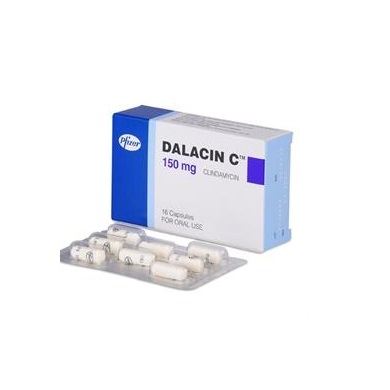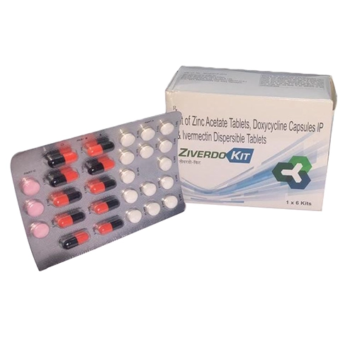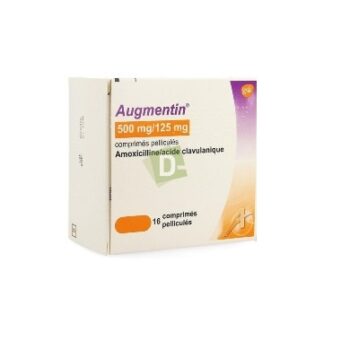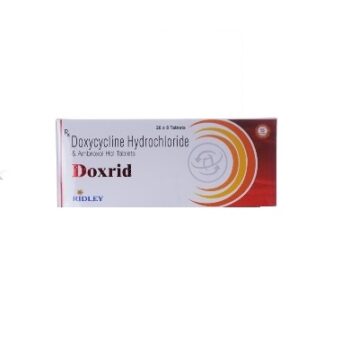Dalacin 150mg (Clindamycin)
Dalacin 150mg, containing Clindamycin, is an antibiotic used to treat various bacterial infections. Its mechanism involves inhibiting bacterial protein synthesis, thereby impeding bacterial growth and reproduction. This medication is commonly prescribed for skin infections, respiratory tract infections, and dental infections.
However, it may cause side effects such as diarrhea, nausea, or abdominal pain. It’s crucial to complete the full course of treatment as prescribed by a healthcare provider to ensure effective eradication of the infection and reduce the risk of antibiotic resistance. Patients should report any adverse reactions promptly to their healthcare provider.
Uses
Dalacin 150mg, containing Clindamycin, is a versatile antibiotic utilized in the management of diverse bacterial infections. Its efficacy spans across various conditions including skin and soft tissue infections, respiratory tract infections, and dental abscesses. By inhibiting bacterial protein synthesis, Dalacin effectively halts bacterial proliferation, aiding in the resolution of infections.
This medication is particularly beneficial in cases where other antibiotics may be ineffective due to resistance patterns. However, prudent use and adherence to prescribed dosages are essential to optimize treatment outcomes and minimize the emergence of antibiotic-resistant strains.
How to use Dalacin 150mg?
Dalacin 150mg (Clindamycin) should be taken orally with a full glass of water, usually every 6 to 8 hours, as directed by a healthcare provider. It’s advisable to take Dalacin with food to minimize gastrointestinal side effects. Patients should never exceed the prescribed dosage or duration of treatment without consulting a healthcare professional.
Even if symptoms improve, it’s crucial to complete the full course of medication to ensure the infection is fully eradicated and to prevent the development of antibiotic resistance. Prompt reporting of any adverse effects to a healthcare provider is essential for appropriate management.
How does It work?
Dalacin 150mg (Clindamycin) operates by inhibiting bacterial protein synthesis through binding to the 50S ribosomal subunit of susceptible bacteria. This action disrupts the formation of peptide bonds, ultimately impeding bacterial growth and reproduction. Specifically, Dalacin interferes with the translocation step of protein synthesis, preventing elongation of the peptide chain.
By targeting bacterial protein synthesis, Dalacin effectively combats a wide range of bacterial infections. Its bacteriostatic effect slows bacterial proliferation, allowing the body’s immune system to eradicate the infection. This mechanism of action makes Dalacin a valuable tool in the treatment of bacterial infections, promoting recovery and restoring health.
Benefits
Dalacin 150mg (Clindamycin) offers multifaceted benefits in the management of bacterial infections. Its broad-spectrum activity encompasses various bacteria, making it effective against a diverse range of infections. Dalacin’s oral formulation facilitates convenient administration, enhancing patient compliance. Additionally, its ability to penetrate deep into tissues ensures efficacy in treating deep-seated infections.
Notably, Dalacin is often a preferred choice in patients allergic to penicillin or cephalosporins. Furthermore, its bacteriostatic action minimizes the risk of bacterial resistance development. Overall, Dalacin’s versatility, tolerability, and efficacy make it a cornerstone in combating bacterial infections and restoring patients’ health.
Side Effects
While Dalacin 150mg (Clindamycin) is effective in treating bacterial infections, it may entail certain side effects. Common adverse reactions include gastrointestinal disturbances such as diarrhea, nausea, and abdominal pain. Patients may also experience skin reactions like rash or itching. Additionally, Dalacin can lead to a potentially severe condition called Clostridium difficile-associated diarrhea (CDAD), which may range from mild diarrhea to life-threatening colitis.
Rare but serious side effects include liver toxicity and allergic reactions. Prompt reporting of any unusual symptoms to a healthcare provider is crucial for appropriate management. Regular monitoring ensures the safe and effective use of Dalacin in bacterial infections.
Precautions
When using Dalacin 150mg (Clindamycin), several precautions should be observed to ensure safe and effective treatment. Patients with a history of gastrointestinal diseases, particularly colitis, should use Dalacin cautiously due to the risk of developing Clostridium difficile-associated diarrhea (CDAD). It’s essential to monitor for symptoms of CDAD, such as severe diarrhea, abdominal pain, or fever, and promptly report them to a healthcare provider.
Patients with liver disease should also exercise caution when using Dalacin, as it may exacerbate liver dysfunction. Additionally, informing healthcare providers about all medications being taken helps prevent potential drug interactions and adverse effects.
Storage
Store Dalacin 150mg (Clindamycin) at room temperature, away from moisture and heat. Keep it tightly closed in its original container, out of reach of children and pets. Avoid storing Dalacin in the bathroom or kitchen.
Conclusion
Dalacin 150mg (Clindamycin) stands as a valuable tool in combating bacterial infections, offering broad-spectrum efficacy and convenient oral administration. While its benefits are significant, cautious adherence to precautions and prompt reporting of adverse effects are paramount for safe usage. By following these guidelines, Dalacin contributes to successful treatment outcomes, aiding in the resolution of infections and the restoration of patient health.











Reviews
There are no reviews yet.